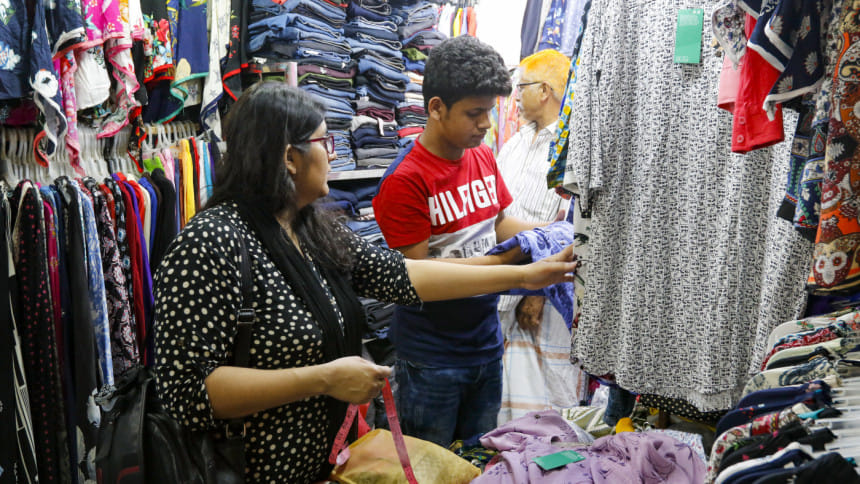The deal with our love for bargaining

Every Bangladeshi has been exposed to the beauty of bargaining or damadami in some form or the other. The culture of bargaining here stands out because instead of trying to get a good deal at assets like cars, enterprise, or wholesale goods, as is normal for most western nations, people here practice bargaining for the smallest of goods, and they do so with apt skill and theatrics. At this point, it's fair to say bargaining has been ingrained into our culture, so much so, that it may even be considered an essential survival skill by some.
It is a pretty well-known fact that in Bangladesh you can haggle the price of almost anything, so long as they are informal goods sold at local shops, and no one does it better than our mothers. Knowing how to get a good deal automatically grants you a status of street-smartness.
According to an article by CBS News, we are chemically programmed to respond to lowered prices. When we see products on sale, successfully bargain something to a cheaper price, or even get a good deal for a thrifted item, hormones in our brain get activated. Dopamine is one of the biggest chemical rewards we have, which is why we keep coming back and feel inclined to bargain wherever we go.
We also get a type of adrenaline rush when getting a good bargain. The false last offers, the uncaring walk off, and the classic comparison with the other store that totally promised a much lower price, all seem to be part of an elaborate unspoken routine that seems very enticing to perform.
Due to its constant reward mechanism, bargaining can get addicting. You might even find yourself arguing over the price of a commodity not because the original asking price was too high, but just because you can. This can create leeway to a detrimental habit of over-haggling for every little thing. A lot of the informal goods we buy come from shops or vans on the sides of roads. One of the most common instances during which people bargain is while giving or setting rickshaw fares.
However, the addictive nature of price haggling often creates an unshakeable habit in people who then resort to putting their skills to practice wherever possible, even for the cheapest of goods.
It's important to remember that for a lot of us bargaining comes from a place of habit rather than an actual need to cut costs. So when we try to lower the prices of goods we buy from relatively less well-off people, we end up hurting their incomes. The money is of higher value to them than it is to us, and incessant bargaining can put them into a tough spot since these are often their only sources of income.
Haggling isn't supposed to be about taking advantage of someone, nor is it an opportunity to get away with goods at an unreasonable price and rob the seller of their money. It's a timeless survival skill that ensures sellers don't take advantage of you, not the other way around.
References:
CBS News. (December 15, 2013). How a great sale affects your brain
Koushin Unber is afraid that she might be peaking at eighteen and it's all downhill from here. Send obscure film theories to her at [email protected]

 For all latest news, follow The Daily Star's Google News channel.
For all latest news, follow The Daily Star's Google News channel. 








Comments